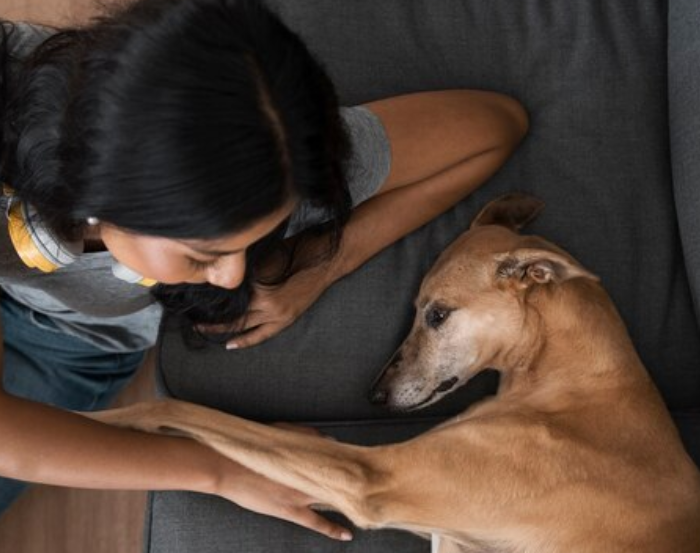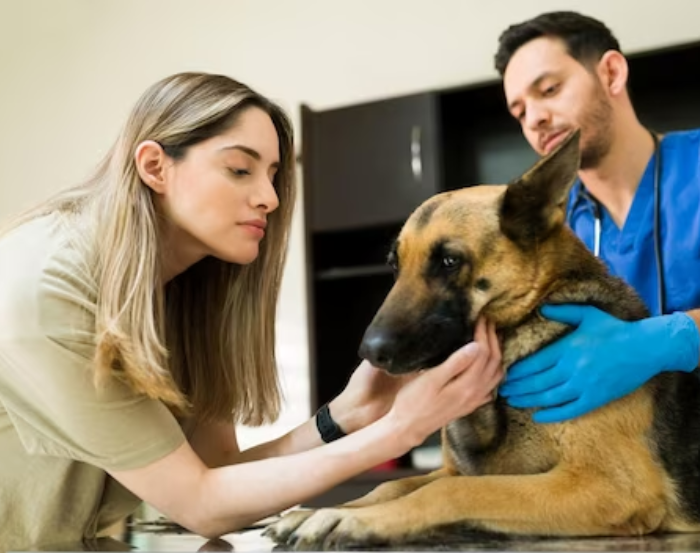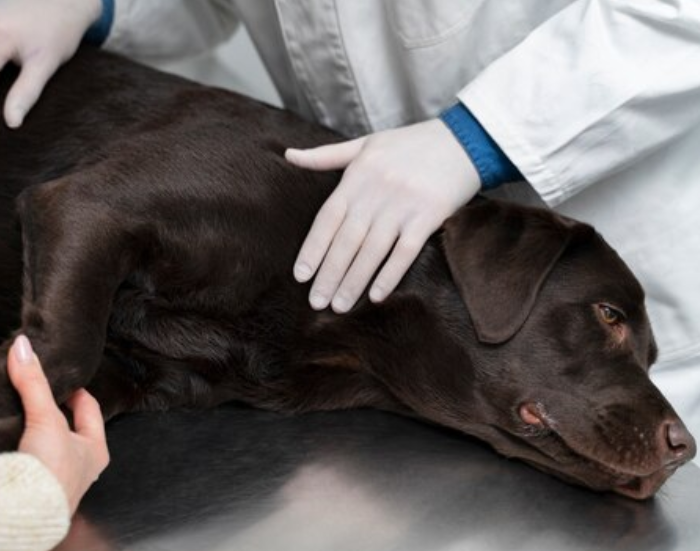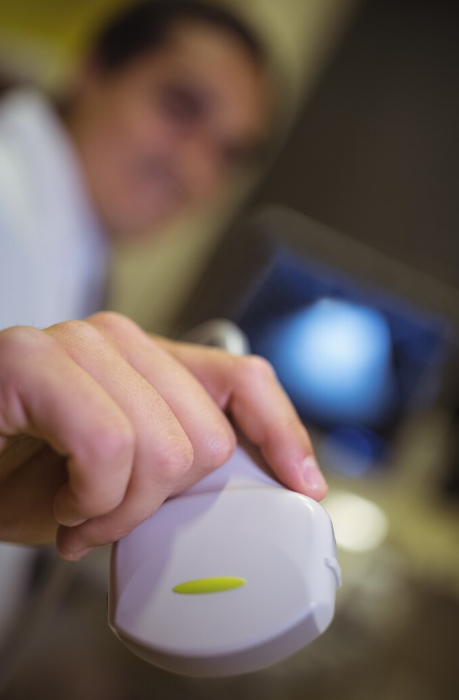2023-12-11
Our insight into medicine and healthcare in general has changed over the years and continues evolving. Different techniques and approaches both ancient and recently invented, are utilized every day to help us remain healthy and balanced.
Alternative medicine and the holistic techniques it relies on have proved their benefits for many people. According to the National Library of Medicine, the term “holistic” is typically used to describe “an attitudinal approach to health care rather than a particular set of techniques. It addresses the psychological, familial, societal, ethical, and spiritual as well as biological dimensions of health and illness. The holistic approach emphasizes the uniqueness of each patient, the mutuality of the doctor-patient relationship, each person’s responsibility for his or her health care, and society’s responsibility for the promotion of health”.
If it works for humans, why not apply it to dogs too? Holistic care has gained popularity in the field of dog treatment as well, enabling many pet owners to utilize alternative healthcare methods for their beloved furry family members!
Some people completely deny holistic medicine, relying on the tools of orthodox medicine only; others prefer holistic medicine over orthodox one. However, there are also people, who believe in the benefits of both types, trying to make them work together instead of holding them in opposition.
Today, we will introduce some holistic techniques in dog healthcare, that might benefit your paw friend’s overall well-being and help them deal with health issues. We would like to note that these approaches may have a great or small effect on your dog, as it is all individual. Consultation with a veterinarian is highly recommended before the use of some holistic techniques.

Scents have been used in therapy for humans for thousands of years and their use as a tool to promote overall well-being can be tracked down to ancient Egypt and Greece.
Aromatherapy can have a very calming effect on dogs, who are stressed and anxious. Additionally, many essential oils have anti-inflammatory functions and help accelerate healing.
Essential oils like Lavender, Chamomile, Vanilla, Bergamot, Ginger, Frankincense, and Rosemary, can benefit our paw friends by helping them calm and promote health. These oils can be used (always with caution) in situations where a dog is stressed due to loud noises like fireworks and thunder; separation anxiety when left home alone; during travel; and when changes in the environment are present and they need some help to cope with them.
As you may know, dogs have a great sense of smell, therefore the effect of aromatherapy on dogs is likely to be even greater than on humans.
If your beloved furry buddy is overly alert, stressed, hyper, or anxious, the beautiful scents that nature gave us may come in handy!
Last, but not least, you should make sure that the oils you are using are dog-safe! Consult with a veterinarian regarding the amount and the proper way to use essential oils!

According to studies, music can positively affect the cardiovascular and nervous systems in humans. However, research, concerning the effect of music on dogs, has also been conducted.
As a part of a study at Belfast University, dogs in an animal shelter were exposed to music of different genres such as classical, reggae, pop, and heavy metal. For study purposes, human conversations were also included. This aimed to prove that the dogs participating in the study responded to the played music specifically, and not to other sounds. The precise recording of the dogs’ responses clearly showed that classical music had the most calming effect on dogs, metal music made them agitated, while human conversations did not have an effect.
Another research was conducted later in Glasgow. Various genres were played to a target group of dogs, including soft rock, reggae, pop, Motown, and classical. The outcome of this study was that music in general has a calming effect on our paw companions (excluding heavy metal). Reggae and soft rock proved the most calming genres based on the dogs’ heart rates which were examined.
When you notice your dog is a bit agitated or stressed, why not play them Mozart or Beethoven?

Hydrotherapy has been used for years to help people recover from skin-related issues or treat chronic health conditions like arthritis.
As the name implies, the term “hydrotherapy” describes a type of therapy that uses water.
If your paw friend is dealing with a health condition such as arthritis or joint issues (typical for senior dogs); if they are recommended a low-impact type of exercise due to their age or weight; if they are recovering from surgery, hydrotherapy might be the right fit for them.
During a hydrotherapy session, your canine is likely to be placed in a pool with warm water and will swim or walk (probably on a treadmill) for about half an hour or less. This will help improve blood circulation, muscles, and mobility and also reduce stress.
Therapy sessions are adapted to each dog’s level of tolerance, endurance, and comfort. If your paw friend needs a life jacket or another type of swimming gear, they will be provided with such.

Who does not love being massaged?
A good massage can be very beneficial for both humans and dogs! It helps muscles relax, enhances blood flow, alleviates stress, stimulates the lymphatic system, improves joint mobility and positively affects recovery of soft tissues.
Some might be skeptical of whether massaging can benefit their dogs so much...Veterinarians recommend massage for two simple reasons:
1. Your dog will probably like it;
2. Your bond will become stronger.
The more quality time you spend with your paw companion and help them associate it with a positive experience, the stronger your connection will become.
If you are not sure how to massage your dog properly, you should consult a professional. Also, you might want to check our article for guidance: Why and How to Give Your Dog a Massage | Ask Our Expert

Chiropractic treatment aims to correct deviations from the normal alignment of your canine’s musculoskeletal system. Throughout the process of making adjustments, the nervous system is relieved from tension and pressure so it can function normally.
Since chiropractic care is accompanied by the use of some amount of force, even if low, it is essential to consult with your dog’s veterinarian and have your dog treated by a professional.
They might also give you advice on how to do it at home, however, do not try it on your own without consultation, as you can injure your dog.

Both techniques originate in China and are derived from Traditional Chinese Medicine. They work on a similar principle and use specific points on the body.
While acupressure is related to applying slight pressure to these points, you can expect thin needles to be inserted into the same points during acupuncture. Both techniques aim to improve blood flow, help the body heal from any injuries, and alleviate stress and anxiety. These methods can be perceived as tools that help the body correct any imbalances itself.
Since these techniques require a professional who knows what points of the body to treat, you should consult with a vet and get recommendations. Do not try to find the specific points on your dog’s body and apply pressure to them if you are not sure you are knowledgeable and experienced enough.

The use of magnetic fields as a part of a treatment to heal injuries or traumas is known as magnet therapy or magnetic field therapy.
This type of therapy is not invasive and affordable. There are rather two polarized opinions about how effective it is. However, since there are no side effects and it is affordable, you might give it a try. If you consider applying it to your dog, please, consult with a veterinarian first.

As you can tell from the name, this type of medicine/ therapy relies on the use of plants (and plant parts, more specifically— roots, flowers, and leaves) for healing purposes. Although herbal medicines are natural, they can be toxic if not used properly.
Typically, herbal therapy is used along with orthodox medicine for the greatest effect. It can also be applied as a part of the treatment of certain epidemiological patterns. Reducing pain, boosting the immune system, and helping inner organs function properly are among the benefits that herbal therapy might have, based on the feedback that supporters of this holistic technique give.

A balanced diet that provides your paw friend with all the needed nutrients is a crucial factor for their overall well-being!
The diet should be adjusted to the dog’s age, health, and lifestyle. If you plan to change your canine’s diet, consult with a veterinarian about how to do it correctly. A gradual transition to a new food is recommended. Any abrupt changes in a dog’s diet, environment, or routine, can cause stress and anxiety.
If you occasionally give your furry buddy homemade food, make sure it is safe for dogs and you don’t overfeed them.
The following articles might give you helpful tips about some easy home-made recipes for dogs and what types of food you should avoid in any case, as they are toxic for dogs: Easy Dog Cake Recipe For Your Bestie; Homemade Dog Treats - Simple and Easy; 11 Healthy Human Food Can Harm or Kill Your Dog.